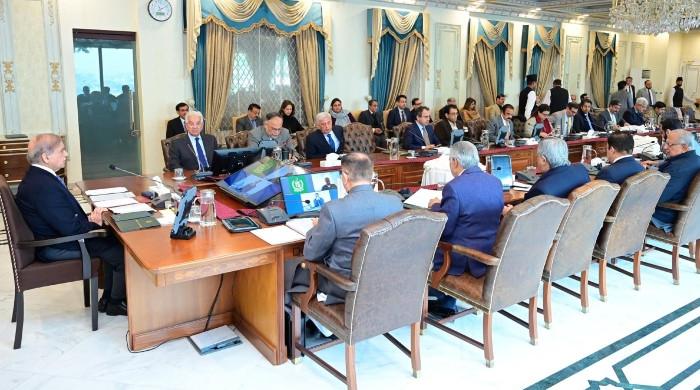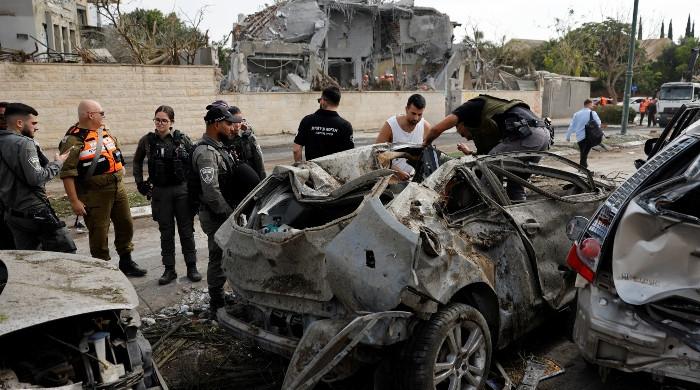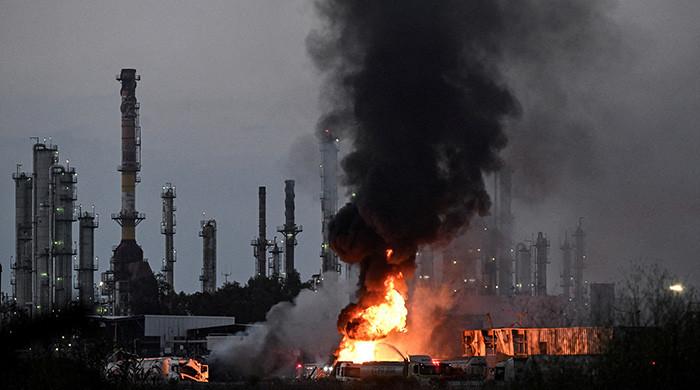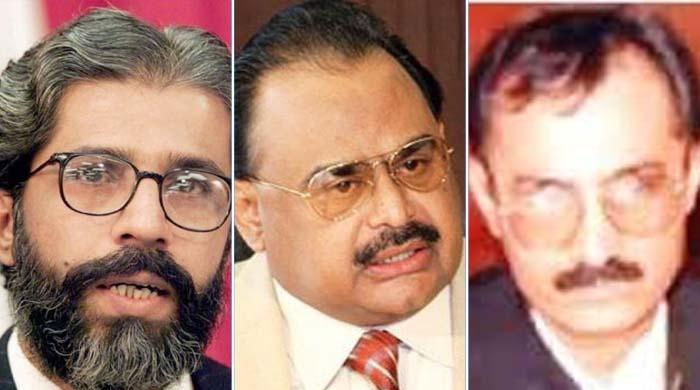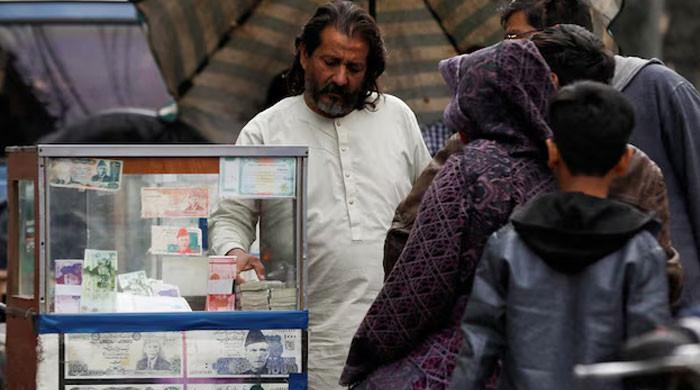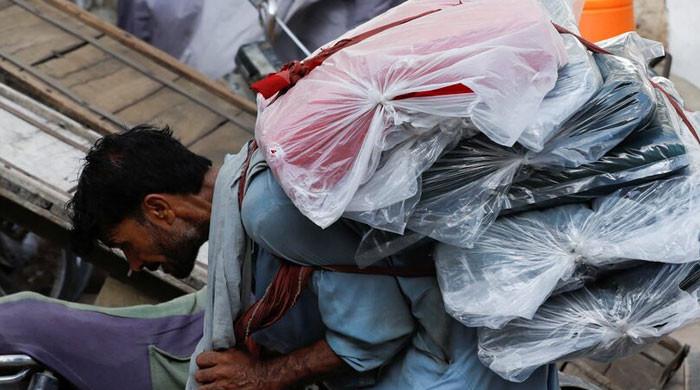Why India's decision is unjustified
PM Modi must view sports independently of politics, as Pakistan did by visiting India despite Shiv Sena’s threat in 1999
November 11, 2024
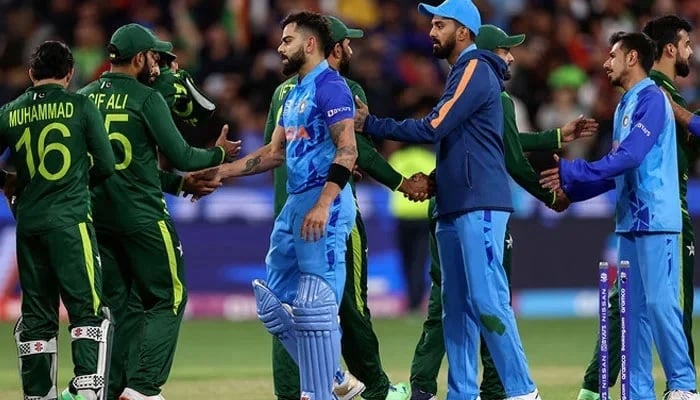
Indian cricketing authorities shouldn’t forget Pakistan’s bold decision in 1999 when it sent its cricket team to India despite an incident where hardliners from the Indian extremist group Shiv Sena damaged the pitch of New Delhi's Feroz Shah Kotla Stadium, — now Arun Jaitley Stadium — the venue for the first Test. India has no excuse not to visit for the ICC Champions Trophy, though Pakistan could have postponed its visit at that time for a valid reason.
None other than the former Indian prime minister, the late Atal Bihari Vajpayee, welcomed Pakistan’s decision, saying, “We must keep politics away from sports.” He was not merely a politician but a statesman of high quality who understood how sports like cricket could bring the people of the two countries closer and help resolve other outstanding issues. However, now the situation is different, as those who damaged the pitch 25 years ago are connected to the current ruling leaders of India.
Pakistan’s track record in sports, cultural exchanges, and people-to-people dialogue is much better, with hardly any incident involving Indian performers, artists, or even cricketers being mishandled or a pitch being damaged. It’s doubtful Board of Control for Cricket in India (BCCI) would use “threat or security” as an excuse. Since the rise of Prime Minister Narendra Modi, the same old rhetoric of “cross-border” narrative, which has nothing to do with sports, particularly cricket, has been used.
When the Indian External Affairs Minister, Dr S Jaishankar, visited Pakistan last month for a conference, there was hope for a change of heart, at least in sports. Yet, it appears Modi’s hardline approach has even made cricket hostage to hate narratives.
Though unsurprising, the Indian government's decision, communicated via BCCI or International Cricket Council (ICC), was disappointing. It’s high time the ICC avoided political considerations if it truly aims to uphold the integrity of the game. Pakistan recently hosted England and other international teams, and many international cricketers have shown a strong desire to play competitive cricket. Now, the ICC, which adheres to a non-interference policy on politics, should take a fair stance.
If teams like Sri Lanka, which experienced a tragic incident in 2009, and New Zealand could visit Pakistan, and if the ICC is hosting the Champions Trophy in Pakistan in February 2025, then why would India choose not to visit?
I believe Pakistan should have waited for an ICC response before reacting emotionally to the BCCI’s decision. While Pakistan Cricket Board (PCB) is right in stating that Pakistan won’t play India on a neutral ground or in any future tournament, this stance might be a bit harsh, and waiting for further developments could be more prudent.
Over the years, Pakistan has shifted its stance on cultural exchanges and dialogue, despite outstanding issues like Kashmir. With time, politics were set aside, and delegations of writers, journalists, artists, and poets began visiting, fostering mutual understanding. Agreeing to disagree is a valuable aspect of democracy, and sports is one of the strongest means to heal divisions.
During Pakistan’s 1999 visit to India, and in later years, Pakistani teams received a warm welcome on and off the field. Indians were also warmly welcomed when they visited Pakistan. Players from both countries, such as Imran Khan, Wasim Akram, Shoaib Akhtar, and Shahid Afridi, became icons in India, while Indian legends like Sunil Gavaskar, Kapil Dev, and Virat Kohli are loved in Pakistan. Unfortunately, many players from both countries have retired without the chance to compete on each other's soil.
In January 1999, former prime minister Nawaz Sharif made the daring decision to allow the tour despite Shiv Sena's threats, and his Indian counterpart Vajpayee welcomed it. Since I broke that story on AFP, I still remember that former Pakistan cricket captain Imran Khan, then building his political career, also welcomed Sharif’s decision at the time.
When Khan, a cricketer-turned-politician, became prime minister, he invited Indian legends like Sunil Gavaskar, Kapil Dev, and Navjot Singh Sidhu to his oath-taking ceremony. Although only Sidhu attended, he brought a bat signed by the Indian cricket team for the then-premier Khan. Such gestures help ease tense political climates.
It’s now time for Prime Minister Narendra Modi to view sports independently of politics, as Pakistan did by visiting India despite Shiv Sena’s threat.
The writer is a columnist and analyst for Geo, Jang, and The News.




